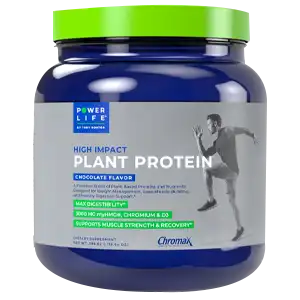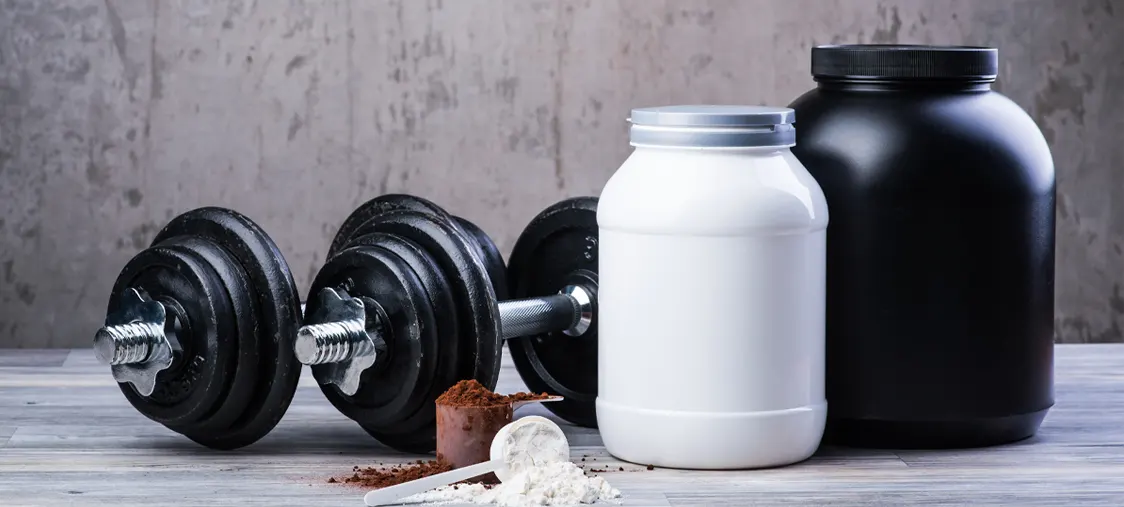Protein is an essential nutrient made up of amino acids that our bodies need for growth, repair, and maintenance. Sources of protein include both animal foods like meat, eggs, and dairy as well as plant foods like legumes, nuts, and grains. Nader Qudimat, Founder, FitFrek.com says, Protein helps build muscles, bones, and organs throughout life.
Protein drinks for muscle gain can supplement our diets, especially for those who have difficulty eating enough whole foods. Whey and soy protein isolates are common in shakes. Protein works by providing amino acids that the body uses as building blocks.
According to Registered Nutritionist-Dietitian, Nicole Anne Martir, Each gram of protein contains 4 calories, and consuming a high protein diet can help boost your metabolism which promotes fat burning. Researchers have found out that consumption of adequate amounts of protein can help you burn an additional of 260 calories in a day compared to consuming a low calorie diet.
It is recommended to consume 0.8g of protein per kilogram of your body weight. If you’re physically active, you may take 1.2 to 2g of protein in a day for muscle recovery.
Protein Intake Calculator
Our protein calculator by Fitness Volt, created with help from nutritional specialists following CDC and ADA guidelines, streamlines the process. It offers an easy-to-use interface providing reliable results.
Simply select your preferred units (imperial/lbs or metric/kg), gender, age, weight, height from options provided, activity level or customize it. Use the below calculator to know your daily protein intake.
Quick Summary
- A protein calculator estimates daily protein needs.
- Consuming enough protein supports muscle mass and bodily processes.
- In general though daily recommendations for protein is 0.8 grams per kilogram of body weight for the average adult, says Michelle Saari MSc, RD.
- In my fitness journey, adjusting intake to 40g per 1000 calories using the calculator noticeably boosted muscle recovery and energy, highlighting personalized protein planning’s value.
Frequently Asked Questions (FAQs)
Q. What is the role of Protein in muscle recovery after exercise?
A. Protein is made up of amino acids, which are often referred to as the building blocks of muscles. After a workout, your body goes into a state of repair, and it uses these amino acids to mend the damaged muscle fibers, helping them to grow back stronger and larger. This process is known as muscle protein synthesis.
Moreover, consuming protein after a workout can help replenish the stores of amino acids that were used up during the exercise, ensuring that your body has an adequate supply to continue the muscle repair process. This is why you often hear about the importance of consuming a protein-rich meal or shake after a workout. As a fitness coach, “I often recommend a protein-rich meal or supplement within the first 30 minutes to an hour after exercise to maximize the anabolic window and optimize muscle recovery”, says Benedict Ang, ACE CPT & PN1- Nutrition Coach.
Q. How many Proteins are in an egg?
A. There are around 2900 different proteins in an egg. Proteins work by providing the amino acids needed for growth, maintenance, and repair of body tissues. According to Jesse Feder, RDN, They have a role in immune support, DNA/RNA production, hormones, and enzymatic reactions.
Q. What Protein powder is best for weight loss?
A. Whey protein powder is considered best for weight loss due to its high biological value and ability to make you feel full. Protein works by promoting the synthesis of muscle proteins and increasing metabolism.
Q. What does Protein supplement do to your body?
A. Protein supplements provide the essential amino acids that protein works by building into new proteins needed for the growth and repair of body tissues, hormones, and enzymes.
Q. Are Protein supplements good to take?
A. Yes, protein supplements can be good to take if you have difficulty getting enough high-quality protein from whole foods. Protein works to help build and maintain muscle mass, especially after exercise.
Q. What is the best form of Protein to take?
A. Whey protein is considered the best form of protein supplement due to its high biological value and fast absorption rate. Protein works by providing the essential amino acids that the body uses as building blocks.
Q. What are the top 10 Protein foods?
A. As per Registered Dietitian/Nutritionist, Brandy Winfree, some of the most protein-rich foods are animal products; beans, peas, and nuts are also excellent sources of protein for people interested in a plant-based diet.
- Canned tuna – 1 tin is about 40g of protein
- Chicken breast – 4 oz is about 30g of protein
- Salmon – 5 oz is about 25g protein
- Lean beef – a 4 oz patty is about 25g protein
- Cottage cheese – 1 cup has about 25g of protein
- Tilapia – 1 fillet has about 23g of protein
- Ground turkey – a 4 ounce patty is about 22g of protein
- Non-fat greek yogurt – 3/4 cup has about 20g of protein
- Edemame – 1 cup has about 18g protein
- Eggs – a 3 egg omelette has about 18g of protein before you even add the cheese!
Key Terms
Gaining muscle as a vegan requires consuming enough calories and protein through foods like tofu, tempeh, seitan, legumes, nuts, and nutritional yeast. Focus on a balanced diet with plenty of complex carbohydrates, healthy fats, and high-protein plant-based options. Use supplements like pea or hemp protein powder if necessary.
Learn More: Best Supplements For Muscle Growth That Actually Work
Getting protein as a vegan involves eating protein-rich plant foods at each meal like beans, lentils, chickpeas, nuts, nut butters, and soy products. Opt for whole foods over processed meat alternatives when possible. Supplement your diet with protein powders derived from peas, hemp, or brown rice. Drink plant milks fortified with protein to get extra protein throughout the day.
Learn More: The Best Vegan Protein Powders of 2024
Meal replacements aim to provide balanced nutrition in place of an entire meal through shakes, bars, or liquid meals. They offer convenience, portion control, and a simple way to reduce calories and lose weight for those trying to change their eating habits.
Learn More: Best Meal Replacement Shakes That Offer Best Results
Low-carb proteins include options like chicken, fish, eggs, and some nuts. They provide essential amino acids and tend to be more filling per calorie compared to carbohydrates. Choosing low-carb proteins can help keep blood sugar stable, aid weight loss, and improve health markers for those on a ketogenic or low carb diet.
Learn More: Best Protein Powders of 2024 For Effective Weight Loss










